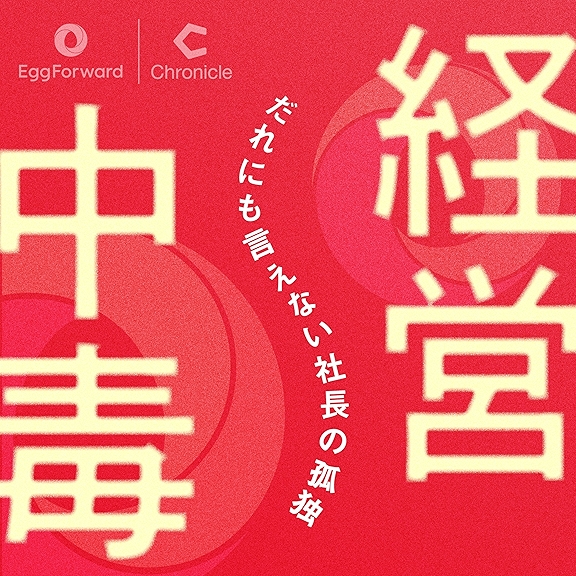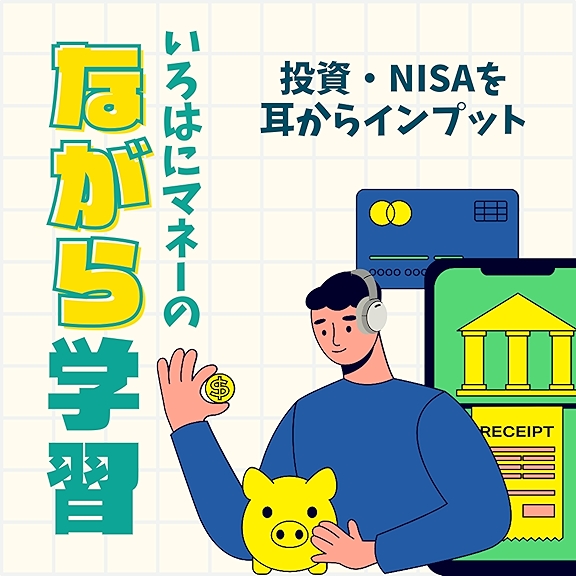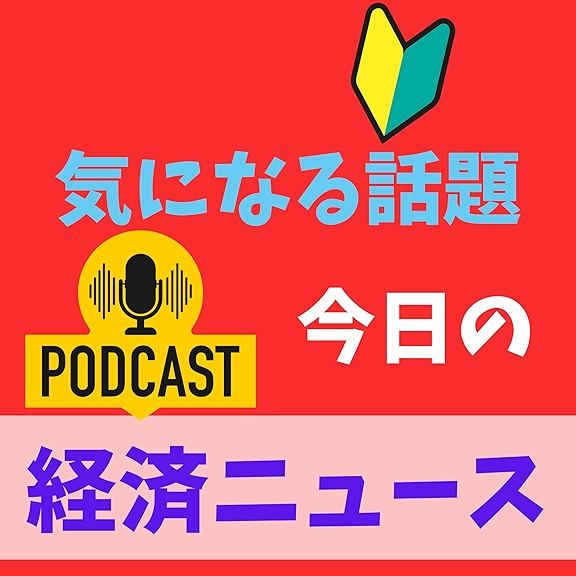
Find our social media and directory links all in one place at linktr.ee/NewMediaLab
Learn more, subscribe, or contact us at newmedialab.smgpods.com.
You can write to us at southgatesmallbusiness@gmail.com and let us know what you think.
Please rate us and review the episode. It really helps other people find us. Thanks!
SUPPORT SHOW BY SUPPORTING OUR SPONSORS
Order our book Pod Life: Podcaster Stories
When you shop at Amazon.com using this link, every dollar you spend supports our podcast network and doesn’t cost you a penny more.
Hunt a Killer – Get 20% off on your first box with Coupon Code SOUTHGATE
Tweaked Audio Headphones – Get 30% off, Free Shipping, and a Lifetime Warranty with Coupon Code – SOUTHGATE
Support our the SMG Podcast Network on Patreon
www.patreon.com/SouthgateMediaGroup
#podcast #business #marketing #socialmedia
Scott Philbrook – S2E5 New Media Lab with Rob Southgate
On this episode, Rob’s special guest Scott Philbrook from Astonishing Legends.
Visit Scott’s website at AstonishingLegends.com
Scott Philbrook Interview
00:00:09 - 00:05:00
Welcome back to new media lab. Thank you so much for sharing your valuable time with me. Hey, before we get started with this week's mazing interview. I wanna fess up this episode of super late two of the ideas. Keep coming up during these interviews or to be consistent did not ghost your audience. I was definitely not consistent. And I'm sure many of you felt ghost. I really did into goes to. But it happened. I've been thinking about why this happened, and I've come to a realization mind, you all the interviews for this season are done and edited there in the can ready to go all I have to do is the intro out tro. And that's it. That's where the stumbling block is. I realized I don't like the show in its current iteration. I love the interviews. Don't get me wrong. But what I don't like is my approach as a host. When I listen to the show. I don't hear my personality coming. Through when I coach people, I stress be yourself here. I am doing the opposite. Yes. This show is more formal and structured than my goofy pop culture shows that does not mean, I should present a sterile version of myself. What I'm asking is that you bear with me as I find my voice on this show. The interviews and information being shared here. Excellent. I truly believe this. My hope by the end of the second season is that I have settled into who. I am on the show. And that you've gotten a ton of value out of what this show truly is my three takeaways from the start of this show are don't ghost your audience without explanation be yourself and don't be afraid to make changes while your show evolves. This week's guest is from one of my favorite podcasts. I love astonishing legends. And it was such a thrill to interview Scott Philbrick, one of the co hosts Scott, I had a great conversation for about an hour. Of which I'm sure in only about twenty minutes. Here. Scott's insights about podcasting and the story of astonishing legends are well, frankly, astonishing before we get to the interview I do have a little bit of business to take care of. I we have a patriot page where you can directly support this show and help keep us going. Join our newest patron Chantal Jones by going to patriot dot com slash new media lab and become a patron right now a show like this is best when the audience and hosting gauged with each other. In other words, getting conversation with me either through Email, Facebook, Twitter, Instagram patriot or any place else. You can find me the Email for this show is Southgate small business at gmaiLcom, send me your questions and comments. I promise I'll respond. You can find new media lab on Facebook by searching at new media lab show. You can follow me on Twitter at. At our Southgate or Instagram at rob Southgate. Our networks website is Southgate media group dot com where you can find this as well. As over a hundred other podcasts, plus blogs, videos, and a lot more. Finally, follow our newest endeavor on Twitter at Indy podcast project and be sure to use the hashtag support. Indie podcasts when post in your own shows or sharing anything podcast related. This week's guest is Scott Filbert from Donna Shing legends. It's a wonderful show. That is a great example of how to present a professional podcast seriously. Check out the show, check out their website and follow them on social media. Even if you aren't interested in their subject matter, you can learn a lot about the business side of things by paying attention to what Scott and Forrest do with their content and now under the interview, can you describe your podcast? Yes. Well, you know what my? Co-host forest, and I will often say that our podcast is is a a lot like unsolved mysteries. If people remember that show, or if you're older even still in search of except as if it was a hosted by click Clack from NPR's car talk. No for people that don't know click Clack, which there are plenty of people that don't, but it's the ideas that we take a conversational approach to the exploration of unexplained and unusual events from throughout history. We touch on cryptic words paranormal UFO's that sort of thing, but we also do historical mysteries like the disappearance of Amelia Earhart, and that sort of thing, and then that all of that is framed by really deep investigative research that we try to do going into uncover angles on the stories, even if it's a story that's been covered thousand times by other people we try to find more indepth information on.
00:05:01 - 00:10:21
So when did you start podcasting are for show? Oh when up in late two thousand fourteen we actually posted our first show in late two thousand fourteen and that is you know, when we started podcasting, technically, however forest, my co-hosted, I had conceived the show probably at least a year earlier, maybe year and a half and spent a whole lot of time talking about it before we did anything to the point where eventually my wife was like are you guys ever going to actually do this? Or you just gonna talk about it, which is sort of what made us get the first show out there. But I I have a kind of a a personal. Obsession with like if you're gonna launch something like that to have it just be as polished in everything as you can possibly make it before you do that first one because the first one's always going to be the worst one. And so I I spent a lot of time making sure we had all the right equipment, and in and that our ideas were wealth out in terms of how the show would flow in all that sort of thing. And to this day, I still m embarrassed by the first few episodes. But that's that's that's how it goes. So yes, we started in two thousand fourteen so we're a little over four years old. Now, are you a celebrity? No, I would say that. I am not a celebrity his an on associated with this show celebrity. No, do you think gaining audience today is the same as win. You started astonishing allegience. No, I don't think it's radically different. And I think it's involving from moment to moment for a wide variety of reasons. I mean, the calling it the wild west is an overused metaphor for anything that's in its infancy like podcasting. And I would say that podcasting. It's it's not an infant anymore. But for me, it's still a toddler everything is, you know, everyone's trying to figure out where they're at the business models are evolving when we started. There was no real business model revenue. There was no we had absolutely no idea if we would ever make a penny on it. And we couldn't find anyone in a mentor capacity or. Anyone anywhere to talk to us about that? You know? Although now, we're close with people, and we could you know, when for example, Jim herald is is a good friend of ours. But if we call him back when we were starting out, he he probably would have not taken the time. Not because he's not a great guy because he is a great guy. But. A billion people are starting out. So an ice seem to remember that when we started. There was I think three hundred fifty thousand podcasts on the I tunes directory. And I think last time I heard it was up at seven hundred fifty thousand it's probably a million now. And so I would say it's a lot harder to get noticed. I would say that shows with really easy to produce content are rampant because it's so easy now to to get started anyone can do it. And so anybody is doing it and people will find out real quickly. Whether people wanna listen to them or not or if they're actually, you know, if they're if in that's it. It's definitely a America Crecy in that way. But there's so much out there. Now that standing out is particularly hard. I would say compared to when we started. I would say it's three or four times harder than the other thing. That's happening is all these big. Companies are consolidating networks. And now the major players are starting to notice that there's revenue in podcasting. Even though it's still just a shadow of what radio revenue is it's gonna catch up. And so what's happening is you know, scripts is getting involved in all these huge multi media corporations in the more of that that happens. I think the harder and harder will be for independent shows to get off the ground not to produce it because you can produce it. You know, if you have an iphone or a smartphone with a recording. You can you can produce something in in get an RSS feed in be out there in minutes. But getting noticed is really the tricky part. You know, how do people find you? And I would say that it's definitely harder now than it used to be worth three key things you've done to grow your audience. The number one thing that we do grow. Our audience is to produce a consistent content and focus on making each show as good as we possibly can. And so when we get overwhelmed with our workload or other things are happening. It's it's very much. A the show must go on. We we work at that to the detriment of our personal lives detriment of everything else to make sure that we are something that our listeners can rely on and trust is going to be there. And so that's one thing that I think really helps I think audiences especially in podcasting and on demand the on-demand world, they look for that thing that they know is going to be there because they wanna plug it into some part of their life at whether they're commuting or working out or doing chores or at work or whatever and.
00:10:22 - 00:15:05
We just try to make sure that we don't ever leave and unpredictable hole for them. Because I think to me that could be disappointing. And I know for for me, you know, I watch these series on Netflix, and they'll do like nine episodes, and they come out and watch all nine of them in two days. And then I have to wait a year for the next round. It's very it's like the during the two days. It's awesome. And then it's like, oh my God. I can't even remember what happened by the time. The next round comes out. So we try to always be there. That's one of the primary things we do. We also try to be very approachable and interactive with our audience on social media, and I guess excessively, and that is it's gotten a little harder as the show the duties of the show have become larger than they used to be from a production standpoint. And also our social media following has gotten a lot larger. So for the first couple years, we were answering every Email now we. Read them all but it's very hard to take the time to answer them, which is is hard. But it it least even reading them. It keeps us in touch with our audience in we'd can refer to the feedback that we get when we're on the air. And we do the other thing that we do to grow the audiences. We really work on cross promotion with other shows, and we're gonna be doing more of that this year. Russia gonna have a marketing budget that we're gonna use to get ourselves more out there. I'm not sure how that how well that's going to work. But that's something that we're just starting to do now, but the cross promotion or the promo swops those seemed to work really, really. Well, you yourself mentioned that you heard heard of us on another show. And that was one of Jim Harold shows who I was talking about a minute ago, and that seems to have a lot of value. So we will arrange to have somebody mentioned us or we'll mention them on the show, and we always look for parody in terms of audience exposure. So. The show is smaller. We might ask them to run a run us a couple of times and versus us or if were smaller will offer to run two or three times versus one run on a larger show. So so we do that. And it seems to work whenever we do that. We always hear from on social media from people. Oh, I heard about you on time suck podcast, or you know, I heard about you on drunk history because one of the performers on. There was came on our show once told a story. So that's those were I would say the three biggest things were doing so far, but, you know, primarily where a word of mouth show and that mostly was just because we couldn't afford to be anything more than that. So all three of the things we're doing we do them because they're free. Santer that question. So what are three key social media practices that you do? I would say daily monitoring all our platforms and daily interaction when it can be managed, and I'd mitt I wish I could be daily interactive on all of them. But I find honestly, I find Twitter to be the easiest one because it's so quick and easy for me to check and see who's responded to us or made a comment or tagged us or whatever. And that you can just pick up and do in just a few minutes, I interact weakly on Facebook, Instagram. We have a Facebook closed group and a Facebook page, and I am frequently on both of those. But then that's not the only face that we have there. We also have somebody who works rush. She's our head of research. She also manages those platforms and his end, and there's an additional Adleman who is a fan. Of the show who takes care of the Facebook page two in those two really really are in there all the time. And it's crazy because our Facebook groups have spawned all these spinoff groups. There's now the astonishing literary group, which is like a book club. There's astonishing artists which is end these we don't even have anything to do with them. I had applied to join him. And they are like that's a graphic an artists page where people do artwork inspired by the show or just talk about art. So it's really kind of exploded into this thing. And it's it's funny for me because I was when we started the show I had gotten over Facebook. I had completely deleted my profile because I'd been on there for years. And then I was Guam I doing I'm not really enjoying this anymore and plus over sharing and all this. And I was like I got a I don't need this in my life. So I I did the whole thing where I went to a web page in read how to like blow your profile up from the inside out like ten steps of delete every picture.
00:15:05 - 00:20:03
I n data. Then you can't log in. I did. All of that. And then when we were going to launch to show I was like, oh that was dumb because we need all the traction. We can get and when I left I had I don't know five hundred or I can't even remember five less than a thousand friends, but maybe five hundred because I've been on there a long time and I used to work in advertising. So I was connected to all these ad agency people, and I gosh, you know, if I could get these people to download it. They don't even have to listen to it. That'll be good for our traction coming out of the gate. So I had to rebuild the page. And the other thing is Facebook won't let you have a business page unless you have a personal page. So which if I didn't have to have a personal page of probably wouldn't have one. But I do only because we can't have the page the group pages without it. So we we are in there were active as much as we can we read we follow the postings. And it's really great because it's like having a live constant focus group in a way, we can see how people are reacting to our content, and we take it into account when we are producing the next show. So that is. That's a two way street were you know, we're getting something out of it. And and the community the online community is getting something out of it as well. So those are those are kind of our practices, and I'd like to be more involved. But you know, and I've thought, oh, we'll we bring someone on to manage that stuff. But to me it has to be enforced because we're it's us that are the show, and I'm not sure that anyone could fairly represent our perspective. So that's just something that will continue to do as much as we can. So which platforms, are you? You mentioned Facebook mentioned Twitter do Instagram are you doing? Yes. Twitch and all these other things or what we aren't doing. We aren't doing twitch we are on Instagram. Our and our our followers. There are about the same. We're all around ten thousand on on on Twitter and just shy of ten thousand right now on Instagram. And then on our Facebook group is I think at fifteen that's their biggest most active. Group, really? And then we were on tumbler, but we stopped doing that just because it was time consuming. And it's a tumbler is a lot of just recreating re you know, re tumbling other people's content. And I was I wasn't fully. You know following how it works. So I and I it was too much to handle. So we dropped that we still have a tumbler page, but we're not updating it. We're not on twitch were not on any of the emerging ones. I, you know, I guess we would explore them if they really get a foothold in the market, and it's everyone's abandoning one that were already using to go over to this other one. But there's only so much you can handle, you know, we're just two guys. And it's it's there's we just try we try to keep it manageable. I guess do you do a strategy or have you used a strategy where let's say you have a calendar for posting you say, okay, we're gonna make sure we do a mean about something on Mondays we make sure we're gonna do a flashback Friday and things like that. Or is it more just organic, it's more organic. We don't have that kind of stuff scheduled. Maybe that would be a good strategy. I wouldn't fault anyone that does do that. But I just generally, especially with Twitter like I said that I'm most active on it. It's generally when something comes up that I think should be shared, you know. And if it's something unusual that that is pertinent to our base. Than I that's the point at which I'll say, hey, you know, I'm gonna I'm gonna share this own ticket vote or whatever, but you can see even if you follow us on Instagram with our ten thousand followers. I only post something on there either. With every time there's a new episode. We post on all those platforms for sure we we announced the new episode when you have a nice image goes with it. And we say, you know, check your feeds whatever it's it's up. The Ansari posting which would happen on Twitter and Instagram. You know by see a photo or take a picture that. I think will be interesting pertained somehow to some topic we've covered all post it. But it and other cases, it might be a while that will go without posting stuff, which probably is a bad practice. But it's, but it's not something that we we schedule. Do you share the same thing on all the platform? So like, if you you tweet something out to the push to Facebook or do you do some of that? And some original things at each place. We do you know, we I know there's platforms that will publish all of them simultaneously. And we we don't do that. Although I I will put like for new episode announcement essentially, the same thing on all the platforms, but I'll tailor them because the hash tags are different on different platforms, for example, or if you're tagging guest on the show or something it's you know, they may have a different profile on Instagram. Versus twitter. So I do manually post to each one.
00:20:03 - 00:25:04
Sometimes the text is all the same other times. It's not on Facebook. We don't have any limitations on the number of characters. So if there was something more that I wanted to say that I couldn't squeeze into a tweet, then I might say more to our Facebook group, but you know, after Twitter increased their tweet length that became less of an issue too. Because you know, you get you get to a point where you figure out how to say it in our main characters that give you now can't remember two hundred something. So it's and that's an art a kind of enjoy trying to get the message out, you know, under the wire in terms of I will frequently tweet in us, you know, be down to zero point on the left character. What is the secret to your podcast success? I, you know, I don't really know why we've been 'Success was we have been. But I think probably a big part of it is just the. Chemistry between me and forest. My co host I we have a very botic in real relationship in repore. I think people here that when they listen to us. And I think that that you know, because it's it's our approach is. Well, a ton of people have done shows on the topics that we do some of them are famous legends have been covered for decades on different platforms in in media formats, but we were pretty sure when we started the show that we were going to be doing it in a way that no one had done before. So there's a combination of it's I would say it's a combination of our how we are conversationally and how we interact in our own personal fascination with our topics that combined with the the approach that we take which is leave. No stone unturned in investigating a legend or mystery. We we're not. Satisfied with the short version of it that you tell your kid at night bed. We wanna know more, and we wanna look at the science behind things to even though some things refused to be classified by science. So I think it's a the reason we're successful is because we're different we wanted to bend the John rouse the paranormal genre, which we felt when we got into it was taking itself too. Seriously. You know, just the the dark theme music, and I'm mostly referring to television. You know, let's mystery and Robert stack and all that which, you know, God bless love that show. It's a huge inspiration force. But we felt like it was time for all this stuff to to take a turn. And so I would I would attribute our success to doing something different within a pre existing and well-worn, John. And then that combined with just the, you know, the chemistry that that might co host. And I have and yeah. That's the end of that sentence. I should put a period on it. Speaking of tweeting. What's the next big thing in podcast, in your opinion? It's it's hard to say like, I said, you know, it's it's it is kind of the wild west the overuse metaphor the wild west there. There's obviously trends that come out in terms of topics that become really popular. And then people don't know that they're popular until they explode like, for example, true crime, which completely exploded after cereal a ton of people heard serial was the first show that was downloaded a million times in a in a week or something. And that was when people were like, oh, wow. This is a mazing. So then on both sides of the equation, people became fanatical about true crime, not only consuming it, but also producing it. So all these shows came to into the podcast universe that were true crime shows, and that's a big trend right now. So, but again, I wonder and I don't know. But I wonder if that if that corner of the. The podcast market is getting saturated, and because it and also I wonder too if the audience is a whole because you think about the longevity of the interest in your in your subject because it's it's part of the the cultural zeitgeist wherever in in the United States. It's like everybody now is kind of interested in in this. But will that Wayne, you know, when we worry about that too with paranormal, stuffing and paranormal things are are very popular right now on their on swing? There could be a cultural shift where people start to move away from that. And then our our show would diminish. I don't know. So in terms of big things in podcasting. There's somebody is going to come out with some new format of a show that's going to be amazing. And everyone's going to be talking about whether somebody really nails the you know a fictional show. Or whatever out something will happen that we haven't thought of yet, and that'll blow up and then when that blows up a hundred thousand other people will come along and try to do the same thing and. You know, five percent of them will get traction. So in terms of the entertainment part of it.
00:25:04 - 00:29:02
It's it's hard to say I would say it's kind of unpredictable from the business side, that's even less predictable. Although like, I said earlier big miss big business is starting to notice the podcasting world. And what I see behind the scenes is all these companies are jockeying for position and trying to figure out how they can take advantage of of the podcast world in the podcast audience. I know that everyone is trying to figure out how to evolve subscription model, which I'd meant that. We would be interested in you could trend away from commercials much like cable did when it came out and changed television. Eventually that's going to happen in podcasting. But there's gonna I think there's gonna be a lot of casualties of that experiment along the way. But with that ever comes along and takes hold if you know. No. There's one company that saying they wanna be the net. Flicks of podcasting. That's great. But you you the the listeners have to be on board with it too. It's more than just a business plan. It's gotta have people that are into it. And I think that will be a big deal when it finally happens, but I still feel like a proof of concept on it's a few years out. As with each of these interviews, I try to leave with three key takeaways. The three that's out to me from Scott. Our number one be authentic number to cross promote with other shows and number three actively interact with your listeners. What are your takeaways what it Scott say that affected, your business and content creation going forward? Share your thoughts on the Facebook threat of this episode of I would love to read your. You can find scotch website at astonishing legends dot com. Make sure to follow Scott Phil broke his co host forest Burgess and the astonishing legends podcast on Facebook. And definitely join their Facebook group as well. Find astonishing legends on your favorite podcast app. Apple podcast, Google podcast, Stitcher Spotify. Tune in wherever be sure to subscribe and give astonishing legends great reviews while you're at it. Please subscribe to new media lab with Robert Southgate wherever you listen to podcasts. You can Email the show at Southgate small business at gmaiLcom. New media lab is on Facebook, simply search for at new media lab xo our networks website is Southgate media group dot com where you can find this as well. As over a hundred other podcasts pleasant logged videos information about our live events information wrote a book, we might have coming out shortly and more if. If you wanna follow me, personally, I'm on Twitter at ourselves or on Instagram at Robson support this show. Awesome extra content becoming a patriot like that extra footage. I alluded to earlier with Scott Philbrick, go to patriot dot com slash new media lab. Choose your tier please rate and review this show on whatever service. You subscribe to podcasts on it really helps others find the show and tells me if you like what I'm doing here, you can find new media lab on items, Google dot casts, Stitcher Spotify tune in radio and hopefully anywhere else that distributes podcast. If you can't find us, let me know. And I'll rectify that situation all this plus more links will be in the show notes and on our website. Don't worry if you don't have a pen to write this down. Thanks again. Scott Bill for helping with my thesis and for being such an incredible guest. That's it. For this week, everyone the next episode of creators level trop next Tuesday. And we'll be back with our next guest. A new media lab on Thursday until then get out there and create something.




















